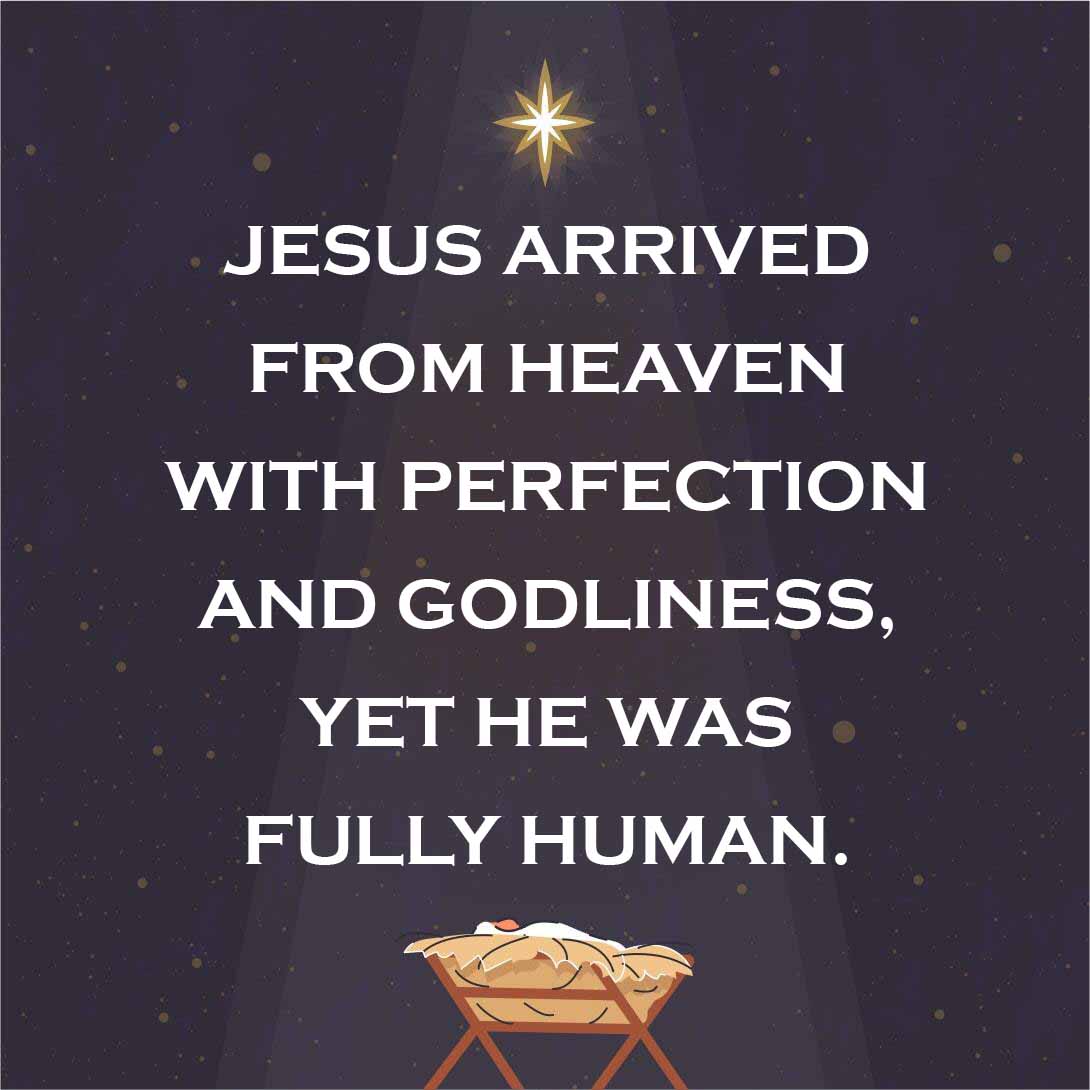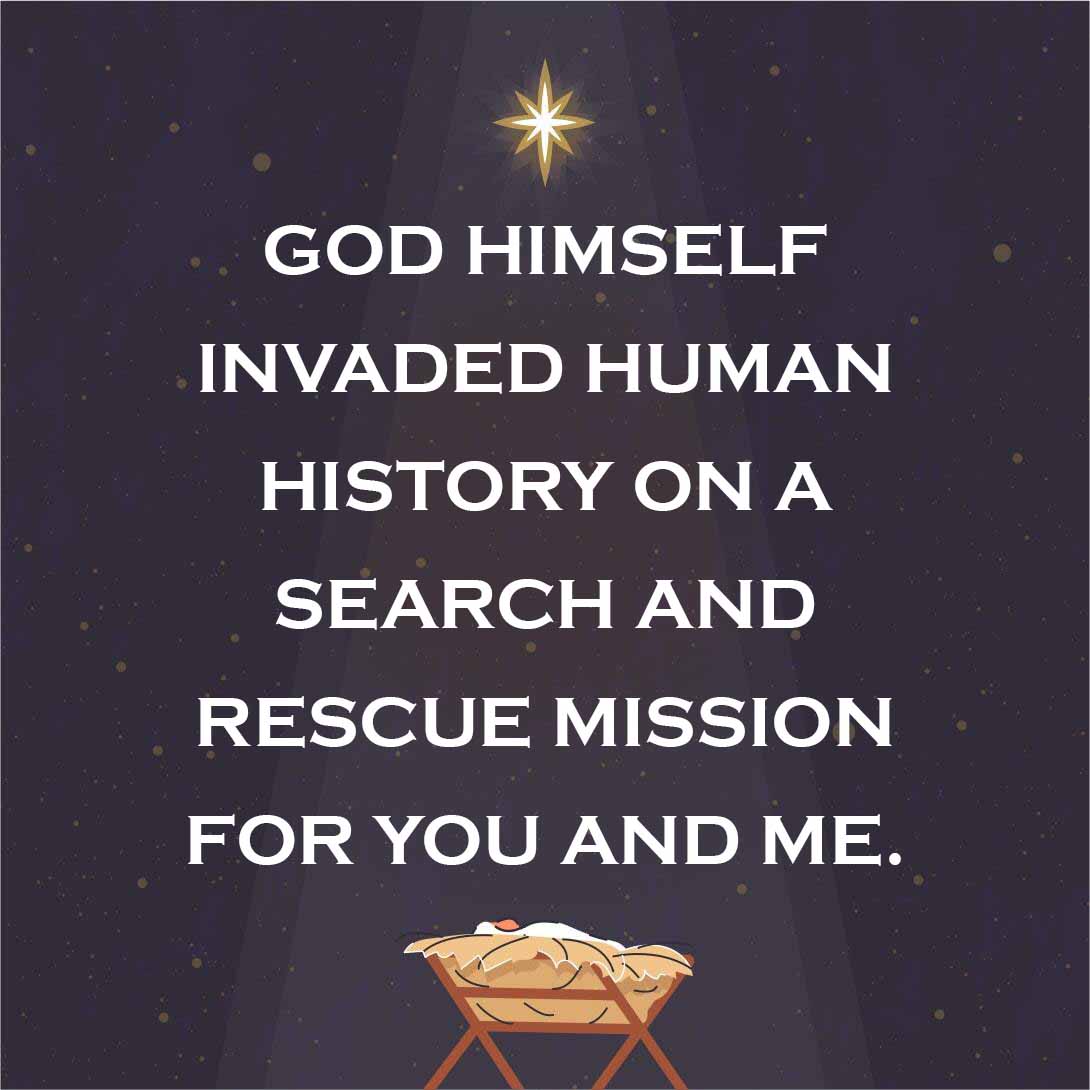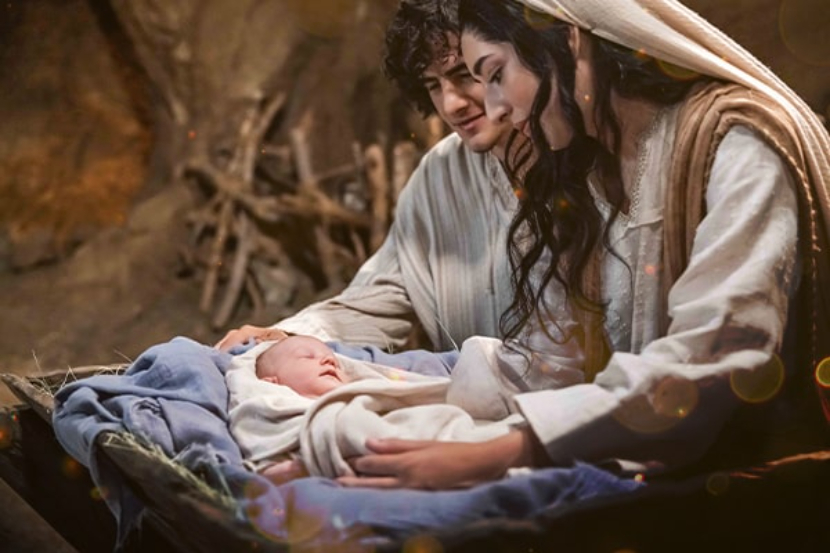Christmas. As hectic as it’s become, we savor the joy of the season. As our world keeps roaring toward an uncertain future, Christmas is a kind of security blanket that connects us to the past. The sounds and sights and smells of the sacred holidays bring back old memories, and they remind us of a Savior who entered human history through a virgin’s womb in a Bethlehem barn.
Many of us haven’t visited a barn for a while. The aroma is anything but holy, hay makes us sneeze, and insects abound. How strange that the Son of God came to earth in the presence, not of world leaders, but of animals. He arrived, not in a palace, but in a stable. He came in simplicity, not extravagance. He demanded none of the world’s comforts nor protections. Jesus came exposed from the first moment to all the dangers the world could offer, and so He remained until He was led to the cross.
Peering through the dimness of that cave or stable, Joseph and Mary probably had to admit that their Baby seemed, at first glance, like any other newborn child. He cried in the middle of the night. He hungered for milk. He needed fresh “swaddling clothes” every now and then.
Why Did Jesus Come as a Child?
Jesus is the One like no other, for He was fully human and fully divine—simultaneously. Nothing about His humanity could detract from His godliness; nothing about His godliness could detract from His humanity. Only because this is true can He reconcile the Father in heaven with His children on earth. He is the Man of both worlds; He is the bridge by which God comes to earth and people come to heaven.
In that regard, the virgin birth is the sign of His divinity. He came to the earth from outside, pure and clean, and was in no way a product of this world. His mother, Mary, had not known a man, but the Holy Spirit had overshadowed her and the power of the Most High had come upon her; therefore, the Holy One born to her would be God Himself.
In the same way, the infancy of the Child is the sign of His humanity. He had ten fingers, ten toes, a nose, a navel, and a good set of lungs. He was one of us in every way. He arrived from heaven with perfection and godliness, yet He was fully human.

It was a deliberate equation. “You shall call His name Jesus,” said the angel to Joseph, “for He will save His people from their sins” (Matthew 1:21). As the Child increased in wisdom and in stature, can we doubt that His parents shared these angelic words over and over? You are the Son of God. You will save Your people from their sins.
How old was the Child before such mysteries were entrusted to His reflection? We don’t know; but we can be sure the God of heaven, the source of the message, guided Joseph and Mary at every crossroad.
It’s not surprising, then, that His very first recorded words back to His parents were that He must be about His Father’s business (Luke 2:49). Later, on thirteen occasions in the Gospels, Jesus described His mission using the simple phrase, “I have come . . .”
- I have come to call sinners. (Matthew 9:13)
- I have come . . . representing my Father. (John 5:43)
- I have come . . . to do the will of God. (John 6:38)
- I have come from Him, and He sent me to you. (John 7:29)
- I have come as a light to shine in this dark world. (John 12:46)
- I have come to save the world. (John 12:47)
Ordinary people never speak of “coming” to this world, much less of “saving” it. Jesus spoke in the parlance of an ambassador on a short but urgent assignment. Perhaps His most moving purpose statement came on the day when He encountered a strange fellow named Zacchaeus who ran ahead of the crowd and climbed the branches of a tree to see the Savior pass by. Zacchaeus had made his fortune by tapping into the corruption of Roman taxes. Conventional wisdom said that a noble teacher of godly truth should ignore such a public parasite.
But imagine—Jesus called the little fellow by name, suggesting the two should dine at the tax collector’s home. In the eyes of the crowd, it was a gaffe for Jesus, and they made their opinions known; but Jesus replied, “Today salvation has come to this house . . . for the Son of Man has come to seek and to save that which was lost” (Luke 19:9-10).
To seek and to save the lost.
We think of pictures of sailors clinging to the wreckage of a ship. Helicopters hovering in the night sky, shining their beacons on the sea in search of the living who must be saved. We think of the collapsed mine, where the workers are trapped far beneath the earth. Their oxygen runs low, and the men crouch in darkness, wondering if they dare hope for salvation. We picture a single stray sheep, trapped on a perilous outcropping. One animal in a flock of hundreds, and who would miss it? The shepherd would. He will leave the many to find the one, at any cost.
The world lies in its own rubble, its own self-inflicted darkness and pain. The greatest enemy of all is the irresistible force within us, the thing known in the Bible as sin. We are all too aware of its grip upon us. We know that its only work is that of our destruction. And yet we enslave ourselves to it in every way. No one has the power to rise above the tendrils of sin. Therefore, the ruin of our fallenness is all around us. The debris is all-pervasive. Our world’s inhabitants, billions of them, long for their rescue, often without even realizing what that longing is for.
Then a light shines in the darkness. A beacon slashes through our despair.
It is Jesus. He stands among us and says, “I have come to seek and to save the lost—to find you and to restore you.” A cure has been discovered for the common sin. Death itself now has an alternative—and the alternative will be so good on the day we experience it that our feeble minds could never contain the joy involved.
It’s joy unspeakable and full of glory.
So it was that Mary was told her Child would be the Son of God. Joseph was told that He would save His people from their sins. Only one human has ever lived a perfect and sinless life; yet in submitting to the Cross, Christ was willing to take the punishment we had earned. It was an exchange. Because a righteous man took a sinner’s punishment, a sinner like you or me can receive the righteous man’s reward. He became poor that we might become rich. He came to seek and to save you and me.
God Himself invaded human history on a search and rescue mission for you and me. That’s why Jesus had to come. And that’s why we have to trust Him as Savior, as I hope you have.

This article was first published in Turning Points Magazine & Devotional. Learn more about the magazine and request your free issues here.
You Might Also Enjoy:
• Why Was Jesus Born in Bethlehem?
• Prophecies Fulfilled by Jesus
• How Do We Know Jesus Is the Son of God?
• Why Did God Choose Mary?
• A Red-Letter Christmas Advent Devotional
• Understand Old and New Testament Prophecy
• 10 Bible Contradictions About Jesus Explained
• Why Do We Celebrate Christmas on December 25?
